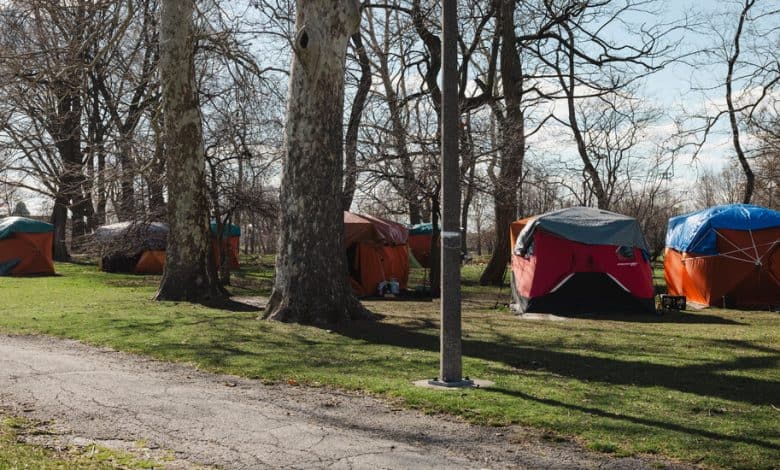Chicago Voters Reject Real Estate Tax Change to Fund Homeless Programs

Chicago voters rejected an increase to the city’s transfer tax on high-value properties in a Tuesday referendum, The Associated Press said, leaving unfulfilled a longtime goal of Mayor Brandon Johnson and progressive Democrats who wanted to use new revenue to address homelessness in the country’s third-largest city.
The result came after days of counting ballots, including mail-in votes, that were not able to be reported on Election Day.
Real estate groups had warned that the new rates would have been a potentially catastrophic blow to the downtown office market, which was already losing value and struggling with vacancies.
The vote came at an uncertain political moment in Chicago, a Democrat-dominated city where homelessness has become more visible since the pandemic and an influx of migrants has strained resources. And the result raised questions about the strength of the city’s progressive movement, led by Mr. Johnson, which has become the dominant force in City Hall over the last decade and which mobilized its army of volunteers to knock on doors in support of the tax change.
“yes, it is a loss for Mayor Johnson and is a loss for the progressive movement,” said Dick W. Simpson, a former Chicago City Council member and an emeritus professor at the University of Illinois at Chicago who campaigned for the tax change.
The referendum called for raising transfer taxes on properties that sell for more than $1 million while lowering that rate on properties that sell for less. Supporters described it as a chance to level the playing field and help the city’s most vulnerable residents. Some referred to it as a “mansion tax,” versions of which have been approved by voters in Los Angeles and Santa Fe, N.M.